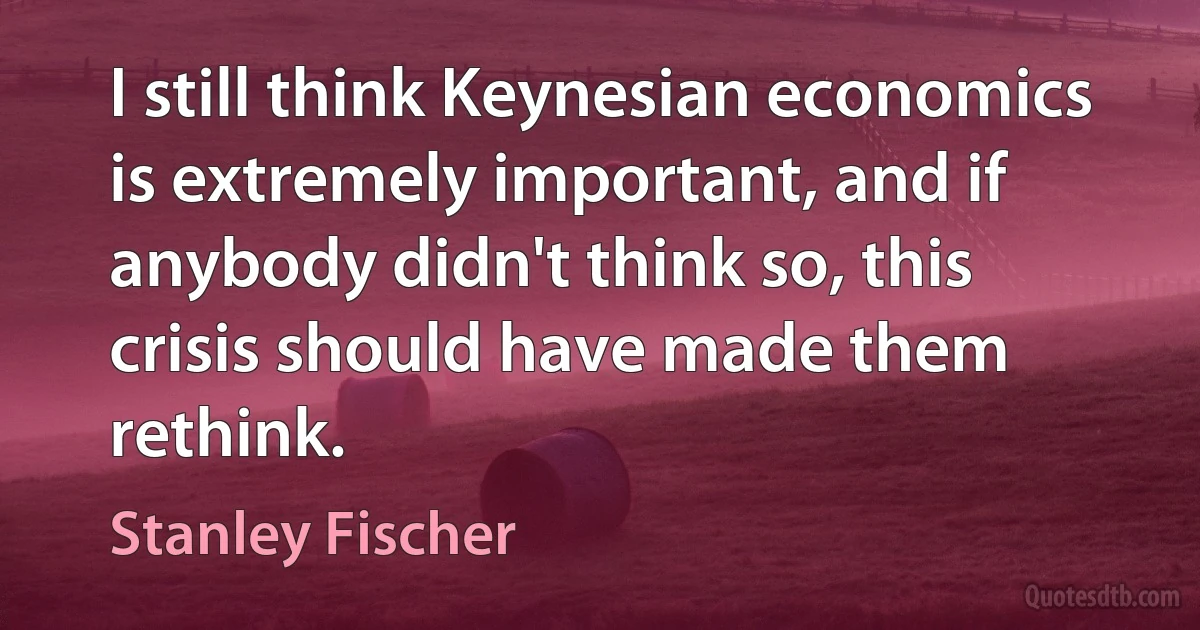Keynesian Quotes - page 3
"It is commonly agreed that Keynes came up with the idea that public works are the best way to help the economy during a recession.
As a result, Keynesian economists seem to have developed a blind faith in the government in general, and in the system of public works in particular.
I do not share the same faith in the government.
I do not share the same faith in public works.

Xavier Sala-i-Martin
A work of genius is a complex object and there is light to be shed about what went into the making of it. Even in the case of scientific and mathematical achievement we can say a great deal about the existing state of knowledge, the problems it failed to address, why those problems were or had become interesting, the particular capacities which the solver brought to their solution. At the other extreme is a work of art which seems to have much more immediate roots in the personal life of the artist or writer. In between is the area in which Keynes worked, which was partly scientific, partly artistic. This gives a wide justification for a biographical approach. As I put it in the introduction to my first volume: 'If underlying Keynesian theory was Keynes's vision of his age, knowledge of his state of mind and the circumstances which formed it is essential, not only in order to understand how he came to see the world as he did, but also in order to pass judgement on the theory itself.

Robert Skidelsky
Colander: What's your view of the New Keynesian approach?
Tobin: I'm not sure what that means. If it means people like Greg Mankiw, I don't regard them as Keynesians. I don't think they have involuntary unemployment or absence of market clearing. It is a misnomer to call Mankiw any form of Keynesian.
Colander: How about real-business-cycle theorists?
Tobin: Well, that's just the enemy.

David Colander
After careful research along these lines, I came to the annoying conclusion that Keynes had been 100 percent right in the 1930s. Previously, I had thought the opposite. But facts were facts and there was no denying my conclusion. It didn't affect the argument in my book, which was only about the rise and fall of ideas. The fact that Keynesian ideas were correct as well as popular simply made my thesis stronger.

Bruce Bartlett
The advent of the new political economy marked a decisive moment in the demise of the republican strand of American politics and the rise of contemporary liberalism. According to this liberalism, government should be neutral as to conceptions of the good life, in order to respect persons as free and independent selves, capable of choosing their own ends. Keynesian fiscal policy both reflected this liberalism and deepened its hold on American public life. Although those who practiced Keynesian economics did not defend it in precisely these terms, the new political economy displayed two features of the liberalism that defines the procedural republic.

Michael J. Sandel
The Second World War supplied the occasion for the spending, and Keynesian economics supplied the rationale. But Keynesian fiscal policy had political appeal even before the war demonstrated its economic success. For unlike the various proposals for structural reform, such as vigorous antitrust action or national economic planning, Keynesian economics offered a way for the government to control the economy without having to choose among controversial views of the good society. Where earlier reformers had sought economic arrangements that would cultivate, citizens of a certain kind, Keynesians undertook no formative mission; they proposed simply to accept existing consumer preferences and to regulate the economy by manipulating aggregate demand.

Michael J. Sandel


